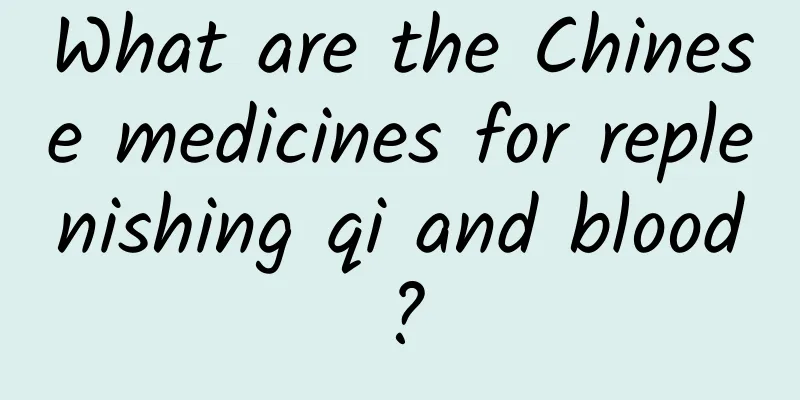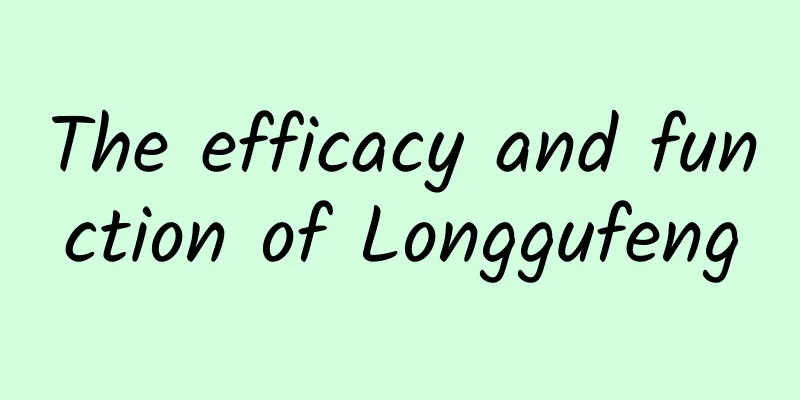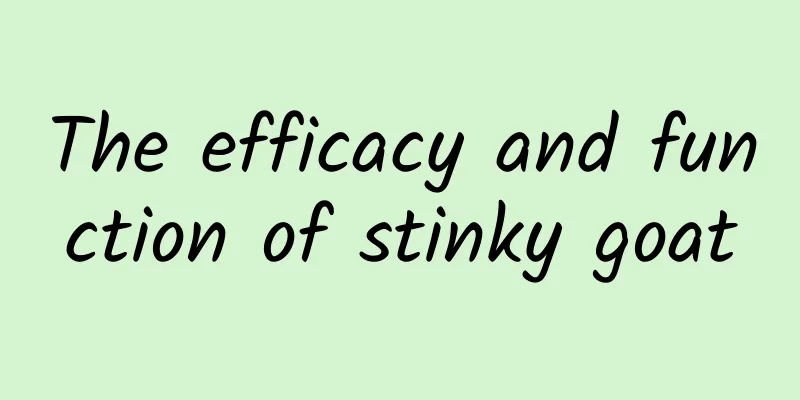What are the Chinese medicines for replenishing qi and blood?

|
As the status of women in modern society becomes higher and higher, more and more topics are focusing on women's health. Because women lose a lot of blood during childbirth and menstruation, anemia is a symptom that many of them have to deal with. There are also many ways and methods of replenishing qi and blood on the market, among which the use of traditional Chinese medicine has been loved and recognized by the majority of friends. So what are the traditional Chinese medicines that can replenish qi and blood? In the next period of time, please join me in taking a look. (5) Placenta: Placenta is the dried placenta of a healthy person, also known as placenta or Hunyuandan in ancient times. Placenta tastes sweet and salty, is warm in nature, and enters the lung, liver, and kidney meridians. It has the effect of strongly replenishing qi and blood, and benefiting the kidneys and producing essence. Placenta contains a large amount of gelatin, protein, calcium, phosphorus and magnesium. According to pharmacological research, the placenta contains a variety of antibodies, interferon, gonadotropin, prolactin and a variety of enzymes with application value, which can enhance the body's resistance, prevent and alleviate infectious diseases such as measles and influenza, and have hormone-like effects. Placenta nourishes Qi and blood, and is suitable for diseases such as weak body, yin deficiency fever, bone steaming and hot flashes, soreness of waist and knees, cough, asthma, impotence and spermatorrhea, as well as female infertility, habitual abortion caused by insufficient Qi and blood, and postpartum milk deficiency. Unlike ginseng, placenta is mainly used to replenish qi and blood, and is more suitable for various diseases caused by insufficient yin and blood, and loss of essence and qi. As the Zhegong Manlu says: "Some people say that Heche is hot and fiery, which is the most misleading. (6) White Peony Root: White Peony Root is the root of the Ranunculaceae plant Paeonia lactiflora, also known as Golden Peony Root. Peony tastes bitter and sour, and is slightly cold in nature; it enters the liver and spleen meridians. It has the effects of nourishing blood and softening the liver, replenishing blood and regulating menstruation; astringing yin and stopping sweating, relieving acute pain, etc. Pharmacological studies have shown that its main active ingredient is paeoniflorin, which has multiple effects such as antispasmodic, analgesic, anticonvulsant, blood pressure lowering, coronary artery dilation, increased coronary blood flow, improved microcirculation, anti-thrombotic, antipyretic and anti-inflammatory. White peony root is sour and cold and enters the liver, so it is an important medicine for nourishing blood and softening the liver It is suitable for symptoms such as dizziness, chest and flank pain, and limb cramps caused by liver hyperactivity and blood deficiency; blood-tonifying and menstruation-regulating medicine is suitable for irregular menstruation, abdominal pain during menstruation, and metrorrhagia and leucorrhea caused by yin deficiency and blood deficiency. It is important for nourishing yin and stopping sweating. It is used to treat symptoms such as excessive sweating, night sweats, epistaxis, hemoptysis, and blood in the intestine caused by insufficient yin in the Ying. The above text content reveals to us some traditional Chinese medicines that can replenish qi and blood. I believe that friends who read it carefully will have a better understanding of it. Of course, I hope that female friends will not just simply learn, but apply the above methods to the actual life of replenishing qi and blood, and pay more attention to their own health, because if you don’t care about yourself, how can you get the care of others? |
<<: Can eating wolfberry increase breast size?
>>: What are the Chinese medicines for replenishing qi and blood?
Recommend
Many people say it is a "hidden killer"! Seriously, everyone should be careful...
Expert of this article: Shi Zhaowen, deputy chief...
Why is it okay for a woodpecker to hit a tree? It turns out we have been deceived for many years...
I came across this classic photo of a woodpecker ...
Are the DIY whitening water and slimming water that are said to be effective in one week really that magical? Drinking water this way is healthier →
gossip Becoming whiter, thinner, and more beautif...
The efficacy and function of otter fur
Otter fur is a very common traditional Chinese me...
How to eat Alternanthera
Alternanthera has the following functions: First,...
Zhou Peiyuan: Defining the coordinates of life based on national needs
Zhou Peiyuan is one of the founders of modern mec...
What are the benefits of mimosa?
In summer and autumn, mimosa can often be seen in...
Don’t do these things within 30 minutes before doing nucleic acid testing!
#Don't drink hot water within 30 minutes befo...
The efficacy and function of Kangban Guigen
Kangban Guigen is a very familiar medicinal mater...
The efficacy and function of pot coke
Guojiao is a very good medicinal ingredient. It i...
What are the effects and functions of Rhodiola rosea?
Rhodiola rosea has a relatively high medicinal an...
8D Magic Chongqing: Our reputation as the “City of Bridges” is well deserved!
Chongqing, as one of the top ten popular tourist ...
The efficacy and function of almonds
Badam almond is a very common Chinese medicine an...
The efficacy and function of Ox Gallbladder Ginseng
We know that there are many kinds of Chinese medi...
The efficacy and function of Laimahui
The names of some medicines are very strange. Peo...









